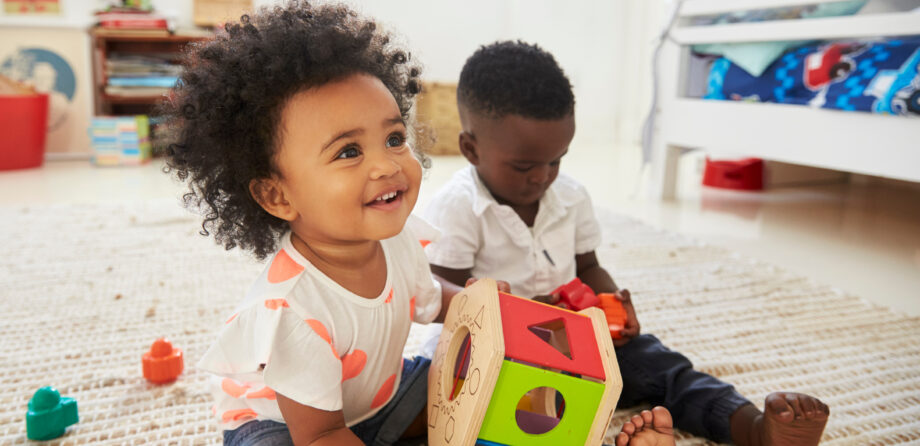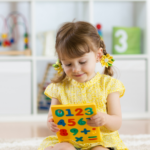
Learning through play in early years
Best practice in early years encourages a play-based curriculum coupled with practitioners who hold a full understanding of the pedagogy of play and the different techniques and methods for teaching children through play.
A range of research tells us that children learn best through play too and there are a number of play theorists that have helped us to support teaching and learning through play
Janet Moyles’ spiral theory
“Play is powerful because it teaches young children many skills and attributes including self-motivation, independence and autonomy, control of their own thoughts and actions, persistence, confidence, competence and the ability to cope with challenges.
“It instils characteristics such as flexibility and creativity and ensures that children acquire positive earning dispositions and use new knowledge, skills and understanding.” (Play and early years: Birth to seven, Moyles, 2013)
With compelling statements such as this, it stands to reason that the role of nursery practitioners in improving outcomes for the children in their care must be by engaging children in play which is meaningful, purposeful and fun.
The more engaged the child is in their play, the better they will learn, so that at the end of their time in nursery they will be better prepared for life-long learning in school and their wider world.
In her research, Janet Moyles talks about children’s entitlement to play and playful teaching. (Just playing? The role and status of play in early childhood education, 1989)
Her ‘spiral theory’ states that children should be allowed to play with resources freely first, then engage in structured play and then play freely again.
The initial free play will allow the children to explore on their own while the structured play (playful teaching) enables practitioners to extend the play, such as by introducing new vocabulary.
Finally, the child can play freely again while practising their new knowledge or skills.
In this way, practitioners can tailor their teaching to the needs and interests of each child, which enables the child to be motivated and receptive to cognitive development.
Encouraging all practitioners to participate in playful teaching using the spiral theory will lead to improved outcomes for children.
16 types of play
Review the 16 Play Types below and consider the opportunities you offer children in your setting to explore each type of play and whether you have any gaps.
Bob Hughes’ 16 play types
- Symbolic Play – play which allows control, gradual exploration and increased understanding without the risk of being out of one’s depth.
- Rough and Tumble Play – close encounter play which is less to do with fighting and more to do with touching, tickling, gauging relative strength. Discovering physical flexibility and the exhilaration of display.
- Socio-dramatic Play – the enactment of real and potential experiences of an intense personal, social, domestic or interpersonal nature.
- Social Play – play, during which the rules and criteria for social engagement and interaction can be revealed, explored and amended.
- Creative Play – play which allows a new response, the transformation of information, awareness of new connections, with an element of surprise.
- Communication Play – play using words, nuances or gestures for example, mime, jokes, play acting, mickey taking, singing, debate, poetry.
- Dramatic Play – play which dramatizes events in which the child is not a direct participator.
- Deep Play – play which allows the child to encounter risky or even potentially life threatening experiences, to develop survival skills and conquer fear.
- Exploratory Play – play to access factual information consisting of manipulative behaviours such as handling, throwing, banging or mouthing objects.
- Fantasy Play – play which rearranges the world in the child’s way, a way which is unlikely to occur.
- Imaginative Play – play where the conventional rules, which govern the physical world, do not apply.
- Locomotor Play – movement in any or every direction for its own sake
- Mastery Play – control of the physical and affective ingredients of the environments.
- Object Play – play which uses infinite and interesting sequences of hand-eye manipulations and movements.
- Role Play – play exploring ways of being, although not normally of an intense personal, social, domestic or interpersonal nature.
- Recapitulative Play – play that allows the child to explore ancestry, history, rituals, stories, rhymes, fire and darkness. Enables children to access play of earlier human evolutionary stages.
This list is not exhaustive or complete and there may be other types of play children engage in within your setting.
Quality teaching in early years
Play is integral to children’s learning and development and practitioners need to be able to offer all children high quality play experiences and have a strong, robust knowledge of child development and an understanding of the way in which children learn and develop.
If you’d like to discover more about learning through play and quality teaching in early years, our Quality Teaching online course is for you. You’ll:
- Identify key skills of being a successful teacher
- Select key elements of teaching in early years
- Recall key play theorists and their contribution to play.
See our Quality Teaching in Early Years online course
- EYFS
- Learning through play
- PSED
- Training



